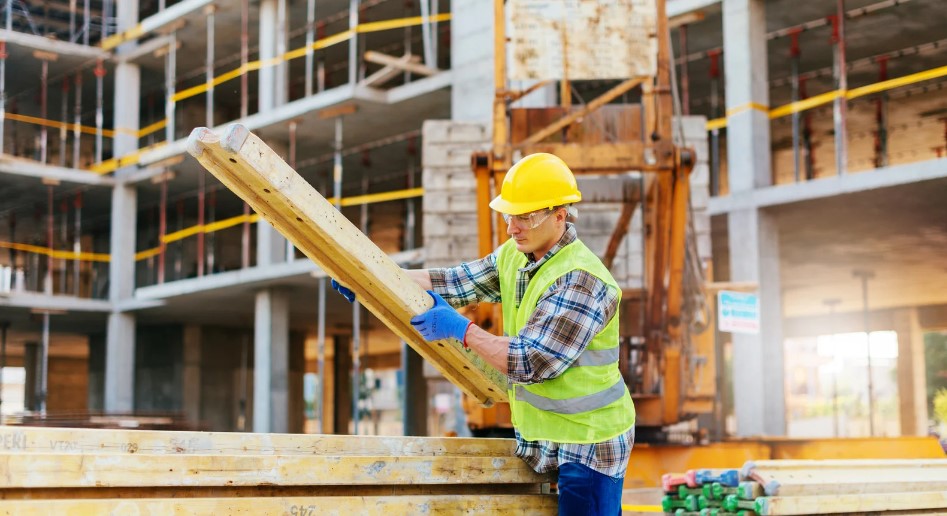Is Construction Getting Too Complicated?
Construction is one of the most complex industries – it combines knowledge, skill, and collaboration. Still, many people are now questioning whether construction is becoming too complicated by recent technological advances and complex building regulations.
Read on to learn whether that’s true and, if so, why.
Back to Basics

Material use plus craftsmanship may get lost due to technological advancements or regulatory pressures, like health and safety concerns or environmental ones. High-quality materials combined with excellent workmanship comprise the very basis upon which successful construction projects are built. Modular Cubed (modularcubed.co.uk) for example, provides modular cantilever retaining walls for construction projects to reduce complexity and maintain structural integrity at a high-quality level.
Other critical materials include high-grade bricks and innovative composites for strength and flexibility. Although using these materials may increase initial costs, they result in durable and quality structures that are less costly to maintain in the long run.
Again, this doesn’t mean there’s no need for technology. It’s about embracing traditional craftsmanship along with contemporary innovations for better outcomes.
The Rise of Complex Technologies
Advanced technologies have flooded the construction industry, aiming to improve its efficiency and accuracy. Technology has arguably taken over how we construct. Building information modelling (BIM) software, drones, and AI-enhanced project management tools are only some technologies propelling construction into a new era.
However, these developments come with huge learning curves and the possibility of making things more complex than they should be.
Still, substantial investments in training and equipment necessary for their adoption are happening. But, small companies may struggle, creating a gap between those who can afford to implement them and those who can’t. Technological advancement should simply serve as an enhancement rather than a complication in the process of construction.
Overwhelming Regulations and Standards
Another reason that makes construction projects complicated is the ever-increasing number of standards and regulations put in place. Besides being important in ensuring safety, sustainability, and quality, they can also be overwhelmingly too much to handle. Complying with numerous codes, permits, or other regulatory requirements can slow down activity or even lead to delays.
Consequently, organisations must hire compliance officers with expertise or consultants to ensure their businesses stay updated on all the demands. Digitising the regulatory processes through digital media platforms is another way issues may be reduced, ensuring efficiency during the undertaking.
The Human Factor

The skill gap is one of the primary issues impacting construction today. The industry hasn’t been able to replace skilled workers who have retired from their service over time. Consequently, besides causing project delays, it also affects the quality of work.
How do we deal with this challenge? Training and apprenticeship programmes need to be funded by leading industry players to attract and retain new entrants. To develop a strong workforce, they should emphasise traditional skills alongside modern methods.
Construction is clearly getting more complicated – do you think we should return to basics? The whole point is to make construction more intelligent and less intricate, but sometimes, the complexities only make matters worse.
Author Profile

- Guest Blogger & Outreach Expert - Interested in Writing Blogs, Articles in Business Niche | News Journalist By Profession in the United Kingdom
Latest entries
 LawJanuary 9, 2026Emily Windsor On The Judgment Calls Barristers Make Daily
LawJanuary 9, 2026Emily Windsor On The Judgment Calls Barristers Make Daily TravelJanuary 7, 2026Key Considerations When Installing Temporary Barriers for Roadworks
TravelJanuary 7, 2026Key Considerations When Installing Temporary Barriers for Roadworks BusinessNovember 21, 2025A Practical Guide to Using LMS Platforms for Better Onboarding
BusinessNovember 21, 2025A Practical Guide to Using LMS Platforms for Better Onboarding EducationNovember 17, 2025Choosing the Right AI Course for Your Child: A Parent’s Guide
EducationNovember 17, 2025Choosing the Right AI Course for Your Child: A Parent’s Guide





